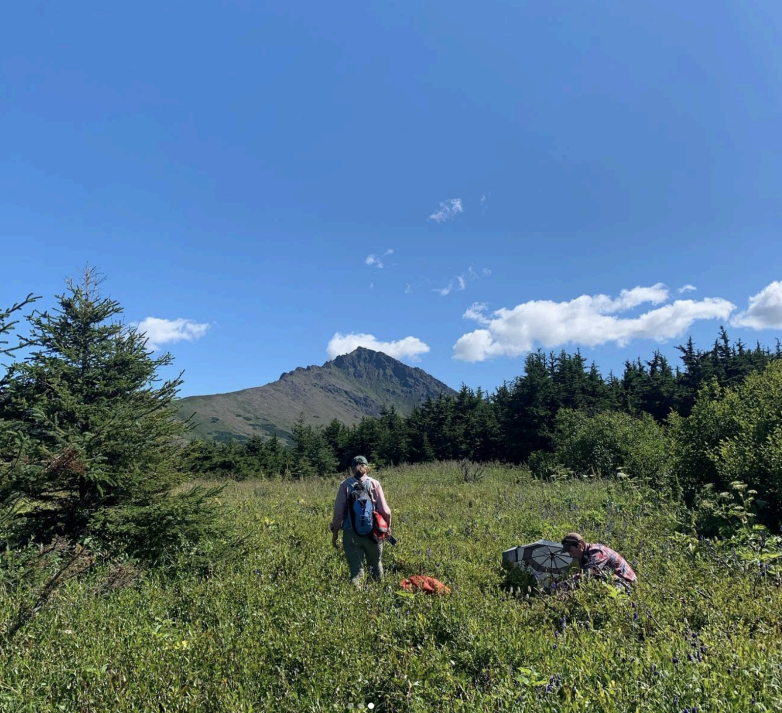 The funding I received from the FLMNH travel grant afforded me the opportunity to travel to Anchorage, Alaska to attend and present my research at the Botanical Society of America’s Annual Meeting. During this week-long conference, I was not only able to connect with numerous researchers in my field of interest (as this was the first in-person Botany conference since COVID), but was also able to attend a number of workshops, and presentations from other researchers in my fields of interest at various stages of their career.
The funding I received from the FLMNH travel grant afforded me the opportunity to travel to Anchorage, Alaska to attend and present my research at the Botanical Society of America’s Annual Meeting. During this week-long conference, I was not only able to connect with numerous researchers in my field of interest (as this was the first in-person Botany conference since COVID), but was also able to attend a number of workshops, and presentations from other researchers in my fields of interest at various stages of their career.
I presented my research titled “Quantifying Error in Occurrence Data: Comparing the data quality of iNaturalist and digitized herbarium specimen data in flowering plant families of the southeastern United States”, which was my first large spoken presentation in my time in graduate school, and I was pleasantly surprised to see so much interest in this topic – as the room was full of attendees when I was giving my talk, and there was some good discussion after my presentation among some other proponents of the use of iNaturalist-based occurrence data, other iNaturalist users, and those who were more skeptical of the accuracy of this data type as compared to museum-only collection data. I additionally attended presentations regarding more classic ecological niche modeling, biogeography, and phylogeography of various plant groups– all of which became crucial to the development and progression of the other chapters of my dissertation. I gained a number of connections in researchers and other graduate students who work in this field, particularly those who also have a particular interest in the plants of the Southeastern United States.
One of the most special parts of this travel occurred on the last day I was in Anchorage, as I was waiting for my flight time, which was later that night. As the conference was over, I took a shuttle from Anchorage over to the Chugach Mountains, and coincidentally, a number of other botanists from the conference had the same idea and were on the same shuttle. It ended up that the group of us hiked the mountains together, with some experts on small alpine plant communities from across the US which were “leading” the rest of us with more expertise in other groups. Not only was it incredible to see these ecosystems for the first time, but it was also an unforgettable way that I made lasting connections with a number of botanists of varying stages in their career.